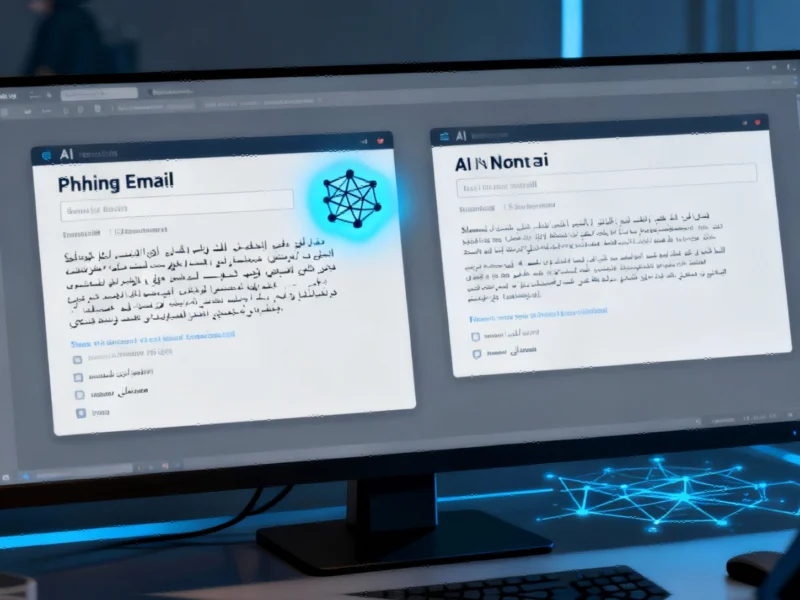Malware Incident on Xubuntu Downloads Portal
The official Xubuntu website recently fell victim to a security breach where attackers managed to insert compromised files into the distribution’s downloads section. The incident, which specifically targeted Windows users through a fake installer, represents a concerning trend in cybersecurity vulnerabilities affecting open-source projects. While the malware—identified as a cryptocurrency clipper—appears to have caused no financial losses according to Hacker News investigators, the breach underscores broader infrastructure challenges facing community-maintained platforms.
Technical Details of the Compromise
The malicious file, disguised as a verified safe installer, was strategically placed within a WordPress path on the Xubuntu.org domain. Security researchers noted several red flags that would alert experienced technical users, including improper formatting and incorrect license references. However, these subtle indicators would likely go unnoticed by less technical visitors. The malware operated by saving “elzvcf.exe” to the AppData Roaming directory and establishing registry persistence to launch at startup. Its primary function involved monitoring the clipboard for cryptocurrency addresses and replacing them with the attackers’ wallets—a technique known as crypto-jacking.
This security incident follows recent technology breaches affecting various sectors, including reports of repurposed jet engines emerging as strategic power solutions in critical infrastructure contexts.
Broader Implications for Ubuntu Flavors
The Xubuntu incident highlights the structural challenges facing Ubuntu derivatives. As Canonical’s official support extends primarily to the GNOME edition of Ubuntu, community-maintained flavors like Xubuntu operate with limited resources. This distinction becomes particularly significant when considering support timelines—while the main Ubuntu Desktop receives five years of Long-Term Support (LTS), derivatives typically only receive three years. The volunteer-driven nature of these projects extends to their web properties, creating potential security gaps that malicious actors can exploit.
Similar industry developments in infrastructure security have been observed across sectors, including data center industry shifts to 21-inch open rack standards that address both physical and digital security concerns.
Website Security and Response Measures
Following the discovery of the compromise, Xubuntu administrators took drastic measures to secure the site, including disabling most sub-pages and redirecting the downloads URL to the main page. The current state of the website shows limited functionality, with dated content still visible in some sections. This incident marks the second security issue in recent months, following a previous compromise that injected slot-machine advertisements into the blog section.
The situation echoes market trends in international technology partnerships, similar to recent diplomatic endorsements of security frameworks that emphasize coordinated protection strategies.
Community Maintenance Challenges
Xubuntu’s predicament isn’t unique among Ubuntu flavors. The Lubuntu project, for instance, lost control of its original lubuntu.net domain and now operates through lubuntu.me. These challenges demonstrate the fragility of community-maintained infrastructure and the importance of robust security practices—even for non-commercial projects. The volunteer teams behind these distributions often lack the resources for comprehensive security monitoring that commercial entities can afford.
These challenges parallel related innovations in energy infrastructure, where projects like clean energy initiatives require significant revamping to address evolving security and operational requirements.
Protective Measures and Future Considerations
For users concerned about similar incidents, security experts recommend several protective measures:
- Verify download checksums against official sources
- Use package managers rather than direct downloads when possible
- Maintain updated antivirus protection
- Exercise caution with executable files from any source
The broader implications of this incident extend to how community projects manage their digital presence. As recent legal settlements in technology cases demonstrate, proper infrastructure management carries significant importance beyond immediate security concerns.
Comprehensive Security Analysis
For those seeking deeper technical analysis of the Xubuntu breach, comprehensive coverage of the Xubuntu website security breach provides additional context about the attack vectors and mitigation strategies. This incident serves as a critical reminder that security requires continuous attention—particularly for projects relying on volunteer maintenance and community support. The response to this breach, while effective, highlights the ongoing challenges facing open-source distributions in maintaining secure delivery channels for their software.
This article aggregates information from publicly available sources. All trademarks and copyrights belong to their respective owners.
Note: Featured image is for illustrative purposes only and does not represent any specific product, service, or entity mentioned in this article.



